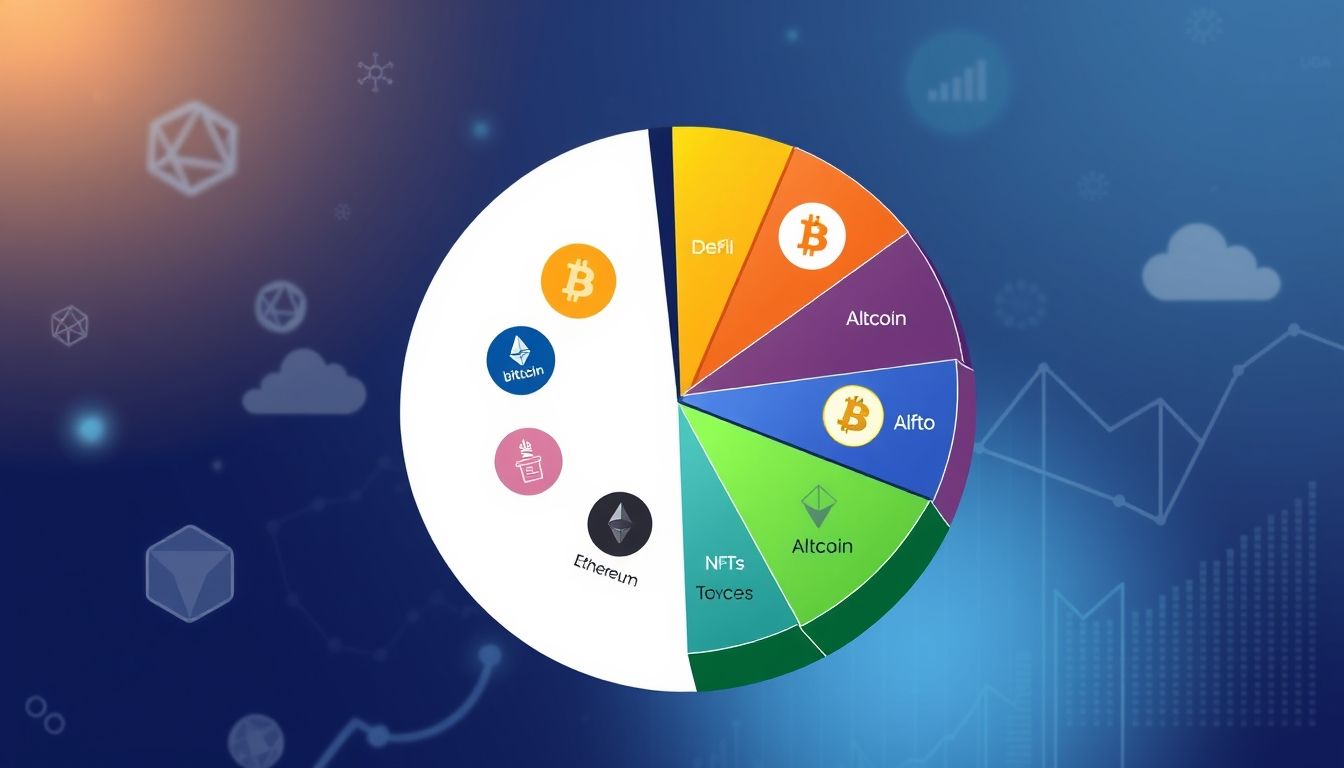Bitcoin in the Arab World: Investment Opportunity or Digital Bubble?
Cryptocurrencies, led by Bitcoin, have experienced significant growth in recent years, generating considerable interest worldwide, including in the Arab world. This article aims to analyze the status of Bitcoin as an alternative investment in the region, explore the opportunities and challenges facing its adoption, and assess its potential future.
Chapter 1: Introduction to Bitcoin and Cryptocurrencies
Bitcoin is a decentralized, encrypted digital currency based on blockchain technology. It was created in 2009 by an anonymous person or group of people under the pseudonym "Satoshi Nakamoto." Bitcoin has several characteristics that make it attractive to investors, including:
- Decentralization: Bitcoin is not controlled by any central bank or government.
- Transparency: All transactions are recorded on the blockchain, which is a public and distributed ledger.
- Scarcity: The maximum number of Bitcoins is 21 million units, making it a scarce asset.
- Accessibility: Anyone with an internet connection can buy and sell Bitcoin.
Chapter 2: Bitcoin as an Alternative Investment: An Overview
Bitcoin is considered an alternative investment because it is not closely correlated with traditional assets such as stocks and bonds. This means it can provide diversification for an investment portfolio and reduce overall risk. Additionally, Bitcoin can provide protection against inflation and the devaluation of traditional currencies.
Advantages of Investing in Bitcoin:
- Potential for High Returns: Bitcoin has experienced significant price increases in the past, making it attractive to investors seeking high returns.
- Hedge Against Inflation: Due to its scarcity, Bitcoin can maintain its value in times of inflation.
- Diversification: Bitcoin can help diversify an investment portfolio and reduce risk.
Disadvantages of Investing in Bitcoin:
- High Volatility: Bitcoin is known for its extreme price volatility, making it a risky investment.
- Regulatory Uncertainty: The regulatory status of Bitcoin is still unclear in many countries, increasing the risks.
- Security Risks: Bitcoin wallets can be hacked and stolen.
Chapter 3: The Status of Bitcoin in the Arab World: Growing Adoption
The Middle East and North Africa (MENA) region has seen significant growth in the adoption of cryptocurrencies, including Bitcoin. This is due to several factors, including:
- High rates of internet and smartphone usage.
- Restrictions on international financial transfers.
- The desire to hedge against inflation and the devaluation of local currencies.
- Increased awareness of the potential benefits of cryptocurrencies.
However, Bitcoin adoption in the Arab world is still lower than the global average. This is due to several factors, including:
- Regulatory uncertainty.
- Security concerns.
- Lack of awareness of cryptocurrencies.
- Opposition from some religious institutions.
Chapter 4: Government Regulations of Bitcoin in Arab Countries
Government regulations of Bitcoin and other cryptocurrencies vary widely across the Arab world. Some countries, such as the United Arab Emirates and Bahrain, have taken a relatively progressive approach, developing regulatory frameworks to regulate cryptocurrencies and encourage innovation. While other countries, such as Egypt and Morocco, remain cautious about cryptocurrencies and have banned their use.
Examples of Government Regulations:
| Country | Regulations |
|---|---|
| United Arab Emirates | Issued laws and regulations to regulate cryptocurrencies and virtual assets. |
| Bahrain | Established a regulatory sandbox for companies operating in the cryptocurrency space. |
| Egypt | Banned the trading of Bitcoin and other cryptocurrencies. |
Chapter 5: Challenges Facing Bitcoin in the Arab World
Despite the great potential of Bitcoin in the Arab world, it faces many challenges, including:
- Unclear or restrictive regulations: Unclear or restrictive regulations can hinder the growth of the Bitcoin market.
- Security risks: Security risks can scare potential investors.
- Lack of awareness: Lack of awareness of cryptocurrencies can slow down adoption.
- Religious opposition: Religious opposition can affect public attitudes towards Bitcoin.
Chapter 6: Opportunities for Bitcoin in the Arab World
Despite the challenges, there are also many opportunities for Bitcoin in the Arab world, including:
- Facilitating international financial transfers: Bitcoin can facilitate international financial transfers faster and cheaper than traditional methods.
- Empowering the unbanked: Bitcoin can provide a means for unbanked individuals to access financial services.
- Supporting small and medium-sized enterprises: Bitcoin can help small and medium-sized enterprises access global markets.
- Promoting financial innovation: Bitcoin can stimulate innovation in the field of financial technology.
Chapter 7: The Future of Bitcoin in the Arab World: Potential Scenarios
The future of Bitcoin in the Arab world depends on several factors, including government regulations, public awareness, and technological advancements. There are several possible scenarios:
- The Optimistic Scenario: Arab governments adopt cryptocurrency-friendly regulatory frameworks, leading to increased adoption and innovation.
- The Neutral Scenario: Government regulations remain unclear or restrictive, leading to slow and intermittent growth.
- The Pessimistic Scenario: Arab governments ban Bitcoin and other cryptocurrencies, leading to a decline in adoption.
Chapter 8: Tips for Arab Investors Interested in Bitcoin
If you are an Arab investor interested in investing in Bitcoin, here are some tips:
- Do your own research: Before investing in Bitcoin, make sure you understand the risks and rewards.
- Only invest what you can afford to lose: Do not invest money that you need to cover your daily expenses.
- Diversify your investment portfolio: Do not put all your money into Bitcoin.
- Be wary of scams: There are many scams related to Bitcoin, so be wary of offers that seem too good to be true.
- Use reputable trading platforms: Choose trading platforms with a good reputation and strong security measures.
- Keep your private keys safe: If you hold your own Bitcoin, make sure to store your private keys in a safe place.
Chapter 9: The Role of Blockchain in Promoting Financial Transparency in the Arab World
Regardless of the future of Bitcoin, the underlying blockchain technology has the potential to revolutionize many industries in the Arab world, including the financial sector. Blockchain can be used to promote financial transparency, combat corruption, and improve efficiency in transactions.
Examples of Blockchain Applications in the Arab World:
- Supply chain tracking: Blockchain can be used to track products from source to consumer, ensuring authenticity and reducing fraud.
- Land registration: Blockchain can be used to securely and transparently register land ownership, reducing disputes.
- International financial transfers: Blockchain can be used to facilitate international financial transfers faster and cheaper.
- Electronic voting: Blockchain can be used to secure the electronic voting process and prevent manipulation.
Chapter 10: Conclusion: Bitcoin is a Promising Investment Opportunity with Risks to Consider
Bitcoin represents a promising alternative investment opportunity in the Arab world, but it also comes with significant risks. Investors should do their own research, understand the risks, and only invest what they can afford to lose. In addition, Arab governments should develop clear regulatory frameworks to encourage innovation and protect investors. Regardless of the future of Bitcoin, the underlying blockchain technology has the potential to revolutionize many industries in the Arab world.
Disclaimer: This article is for informational purposes only and does not constitute financial advice. You should consult a qualified financial advisor before making any investment decisions.




